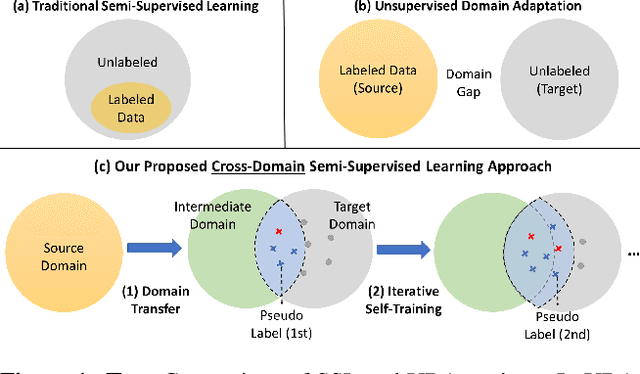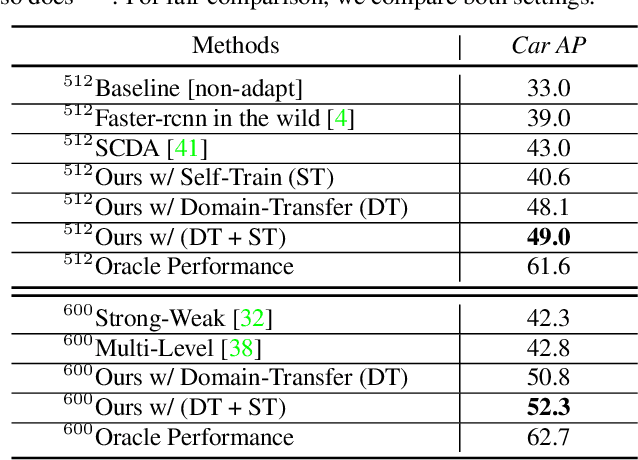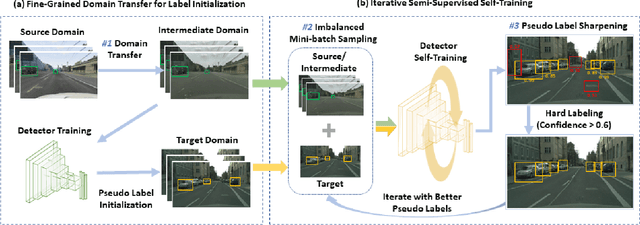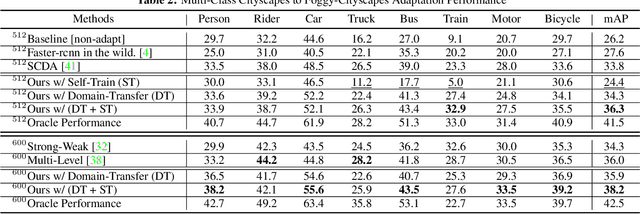Unsupervised Domain Adaptation for Object Detection via Cross-Domain Semi-Supervised Learning
Paper and Code
Nov 24, 2019



Current state-of-the-art object detectors can have significant performance drop when deployed in the wild due to domain gaps with training data. Unsupervised Domain Adaptation (UDA) is a promising approach to adapt models for new domains/environments without any expensive label cost. However, without ground truth labels, most prior works on UDA for object detection tasks can only perform coarse image-level and/or feature-level adaptation by using adversarial learning methods. In this work, we show that such adversarial-based methods can only reduce the domain style gap, but cannot address the domain content distribution gap that is shown to be important for object detectors. To overcome this limitation, we propose the Cross-Domain Semi-Supervised Learning (CDSSL) framework by leveraging high-quality pseudo labels to learn better representations from the target domain directly. To enable SSL for cross-domain object detection, we propose fine-grained domain transfer, progressive-confidence-based label sharpening and imbalanced sampling strategy to address two challenges: (i) non-identical distribution between source and target domain data, (ii) error amplification/accumulation due to noisy pseudo labeling on the target domain. Experiment results show that our proposed approach consistently achieves new state-of-the-art performance (2.2% - 9.5% better than prior best work on mAP) under various domain gap scenarios. The code will be released.
 Add to Chrome
Add to Chrome Add to Firefox
Add to Firefox Add to Edge
Add to Edge